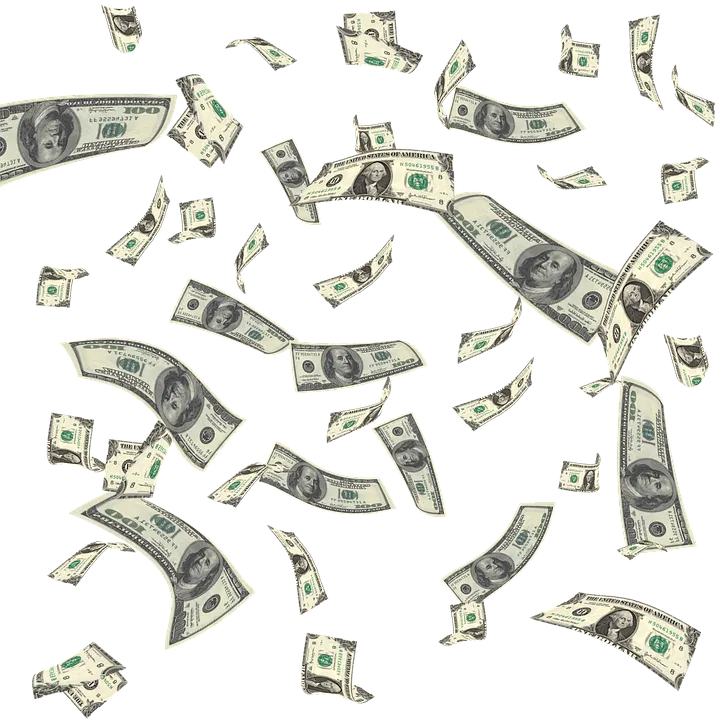Going back quite a few years, I studied some economics. Not a lot really in hindsight (I didn't even finish my under-graduate Economics and Finance degree), but it has always been an interest of mine. Over the last 12 years, a new paradigm has come forward that I have been vaguely aware of, but not really payed attention to. Quantitative Easing, or QE for short, has occurred a few times since 2008 in the US in particular. This approach to guiding a nations economy through times of low growth or crisis lends heavily from the "Modern Monetary Theory" approach. Essentially, the government printing presses are figuratively put into overdrive, and the economy is pumped with huge amounts of "new" cash, from thin air.

What has really got me thinking now about this was reading an article from Triple J Hack website entitled "How come Australia suddenly has billions of dollars to pay for welfare? by James Purtill. It was published on Wednesday 8 April 2020 and is a fascinating and eye opening read, and manages to explain a lot of what's going on in a manner that is easier to understand than most other articles I have found.
So what is Modern Monetary Theory? (MMT)
I have been attempting over the last month or so to wrap my head around this concept, without much success. The theory as I understand it is that Governments can create new money, from thin air, without it leading to traditional economic effects that this action has caused previously. History is full of examples of governments printing money to try and fix an economic problem, and just creating a bigger mess of hyper-inflation and eventually total economic collapse.
Traditional economic theory is that printing lots of money to spend your way out of an economic crisis is bad - pure and simple. It doesn't work, never has, and is just bad economics. This has been common understanding as long as I can remember, and that is exactly why I have had such a hard time grasping the concepts of QE and MMT.
The concept came together for me reading the article linked above. Here is a quote from the article that flicked the lightbulb for me:
The MTT response to this is that a government may have infinite piles of cash, but it shouldn't always spend them freely.
In other words, the limit on government spending shouldn't be the budget, but inflation.
Here's that idea in more detail: MMT says inflation will only happen when aggregate demand (all the purchasing being done in the economy) outstrips the goods and services available for purchase (the supply). If there are a lot of dollars trying to purchase stuff, and not enough stuff to purchase, that stuff becomes more expensive.
So long as the economy keeps producing enough goods and services, the theory goes, it won't have too much inflation.
For this reason, MMT advocates say, governments shouldn't spend freely during periods of high employment, as the economy can't increase production to meet the extra demand and would therefore be at risk of inflation.
So, my understanding from this and some other reading is that MMT basically flips the role of Government and Reserve Bank on its head. The Reserve Bank can create money, then lend it to the government basically for free. The government can spend as much as they want, with the limit being inflation, not the traditional government tax budget. So long as inflation remains low, the government can keep spending. In fact, the theory suggests that so long as the country keeps producing goods and services, governments never need to repay the debt. Or, they can simply print more money to repay the debt.
Governments around the world seem to be shifting rapidly towards accepting MMT as the solution to the current Coronavirus crisis. Simply pump as much money as needed into the economy to keep it afloat. Unlimited money. But the interesting thing for me is what happens when COVID 19 passes, or at least the economic damage is over? Will otherwise conservative governments implement Austerity measures (increase taxes, reduce spending) to pay off all this new debt, or will MMT become the new normal?
Now the big "What if?"
What if MMT is right? Money can be unlimited, so long as Inflation doesn't kick in. National debt doesn't have to be repayed, so long as the ecomony keeps producing stuff.
A lot of us in crypto believe fiat money is doomed ultimately. Fiat has no backing, supply is manipulated, creating more is inflationary, etc, etc. But what if MMT is right? What if countries can pump their economies with unlimited money during times of crisis, without the negative impacts such action would history would tell us are inevitable?
I'd really love to hear people's thoughts on this topic. Australia has started heading down the path of QE for the first time. Is our economy doomed as a result, or is MMT the future of economic management? The US has had periods of QE accsionaly since 2008, it hasn't collapsed, so perhaps this theory works...
Also please feel free to correct anything I have stated above. I am still trying to wrap my head around MMT and may have misunderstood stuff.
Further Reading:
- QE: What it means for Australia - AFR article March 23.
- 2020 could be the year Australia joins the QE club Article from ABC on 7 Dec 2019 (before the Coronavirus had any impact on the economy)
- The Ramifications of QE in Australia Article published on 10 MARCH 2020 on Livewiremarkets by Daniel Siluk.
